Somaliland
Agenda for Change Members working on systems approaches
Please note this is a summary of information. You can learn more on the CARE, Concern, and Welthungerhilfe websites.
CARE’s Haraad Reeb project from 2013 -2016 aimed to build the resilience of target communities against drought-related shocks. The project focused on rural semi-sedentary populations living in small villages spread across the eastern regions – Togdheer, Sool, and Sanag. CARE and the Ministry of Water Resources Development (MoWRD) had a robust working relationship throughout—outlined in a joint memorandum of understanding (MoU) and applied at national, regional, district and village levels.
Concern Worldwide has been working in Somaliland since 2010, implementing programming in community resilience and emergency response in the Marodijeh and Awdal regions. Concern works to increase water access to rural, displaced, natural disaster (drought and floods) affected communities facing water scarcity. This is through rehabilitation and repairs of existing water sources, construction of new water sources and emergency water trucking. Concern complements these interventions with activities in hygiene and sanitation promotion. Concern has developed a very strong collaborative working relationship with the Ministry of Water Resources Development.
Welthungerhilfe’s Sustainable Services Initiative has contributed to WASH systems strengthening in Somaliland, alongside other actors, over the past year. Recent progress has included the active participation of UNICEF, the MoWRD, and the MOH.
Systems strengthening activities
CARE integrates an indicator of gender and equity into their system strengthening criteria. In Somaliland, and other similar contexts, CARE addresses men’s initial resistance to female inclusion, and develops the capacity and confidence of women to participate in decision-making and governance of water supplies. In Somalia, CARE built on the relationship it initially developed with the Government in constructing and managing water systems and is now working within two departments (Department of Water and Department of Regulation) to write and implement the manual to effectively decentralize the management of water systems to utilities or companies across the region.
Concern has constructed & rehabilitated over 160 water points since 2011, providing access to improved drinking water for the population and livestock. Concern’s systems approach involves working collaboratively with Ministry of Water Resources Development, Local Authorities, traditional and local leaders, community groups, and private sector. Concern’s technical support to the Ministry of Water Resources Development included the re design of underground water storage structure and contribution to stakeholders’ workshop to develop water harvesting strategy for Somaliland. Concern is an active member of the WASH Cluster, becoming a member of the Strategic Advisory Group in 2021, and works closely with other actors to improve coordination and quality of WASH approaches. Concern works with targeted communities to support their active participation in the planning, implementation, monitoring and management of water sources. Concern trains water and sanitation committees on the maintenance of water sources, including rainwater catchments.
Welthungerhilfe’s activities in Somaliland include reasonable tariff setting and collection, establishment, training and legal registration of Water Service Providers such as Water Management Committees and Public-Private Partnerships, establishment of WASH regional coordination meetings, water sector asset data establishment and regular updating, and creation of district WASH monitoring plans. Welthungerhilfe convened a series of stakeholder workshops in Somaliland, both at the sector and regional levels, whereby government and non-state actors collaboratively analyzed the strength of the WASH system and identified and prioritized key actions to address these. In an attempt to ensure the agreed outcomes of these workshops were operationalized and institutionalized, a sector task force on systems strengthening was established to oversee the implementation of agreed actions. This taskforce is chaired by the Director of Planning from the Ministry of Water. To increase mobile agro-pastoralist communities’ access to clean drinking water in the Adwaal region, Welthungerhilfe and its partners are working with communities and local government to plan and build water infrastructure that suits their needs, provide training to committees to support the new infrastructure and increase awareness about health and sanitation issues in communities and schools. Welthungerhilfe co-leads this process with the Ministry of Water Resources, with strong collaboration with partners including CARE and UNICEF.
Other partners
Entities of the Central Government
Ministry of Health Development (MoH), Ministry of Water Resources Development (MoWRD), Ministry of Water and Irrigation, East African Sanitation and Hygiene Consultants (EA-WASH)
Local Governments
Regional authorities, District and Regional Ministries of Water Resources
All others
UNICEF, Viva con Agua, German Toilet Organization, German Federal Ministry for Economic Cooperation and Development, Community Education Committees, Water and Sanitation Users’ Committees
[mapplic id=”8178″]
Accomplishments
- Involving the Ministry of Water Resources Development throughout WASH sector analysis, planning, implementation, and joint monitoring is increasing institutionalization. Further, Concern confirms its commitment to coordinate and complement the Ministry’s strategies and efforts for the provision of WASH services; for instance, they provided resources to the Ministry to organize stakeholders’ consultation on water harvesting in 2021.
- At the community level, Concern has established and trained a network of water management committees who are playing active roles in the management of water sources and systems. In addition, trained community-based technicians provide the necessary services to maintain and repair water infrastructures.
- Sector workshops lead to the creation of a Systems Strengthening National Task Force, and the decision to pilot regional-level systems strengthening in two regions (one supported by CARE, and one by Welthungerhilfe).
- Even at the early stages of the WASH systems programming led by Welthungerhilfe, the process has already helped broaden the perspectives of many stakeholders in the WASH sector in Somaliland, gained the interest of the Somaliland WASH Cluster, and has significant interest and backing from MoWRD at national and regional levels.
Challenges
- The Government’s capacity and budgets in the WASH sector are limited compared to the needs across Somaliland.
- Advocating for decentralization of water-related functions especially in a water-scarce country, can be challenging.
- Undertaking systems analysis in fragile contexts reveals a huge number of issues, which can be overwhelming. There is a need to prioritize issues and distil to a number of manageable actions.
- COVID-19 pandemic affected ability for active stakeholder engagement, particularly community processes.
- Security remains a major challenge in certain parts of Somaliland, resulting in instability and continued displacement.
How strong are the systems?
To determine how well systems are working, we rely on data derived from Building Blocks, which are manageable ‘sub-systems’ that can be supported and strengthened. Certain building blocks may be more strongly developed or applied at district or national level. Interactions between building blocks are essential.
National level
Building Block
Water
Sanitation
Hygiene
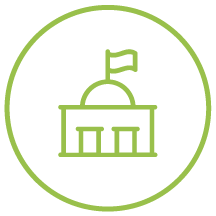
Institutional Arrangements & Coordination
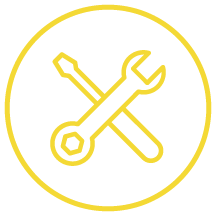
Service Delivery Infrastructure
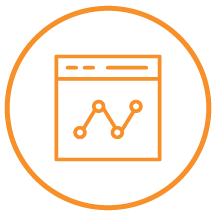
Monitoring

Planning
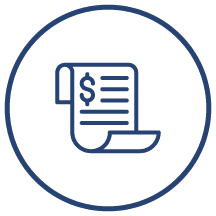
Finance
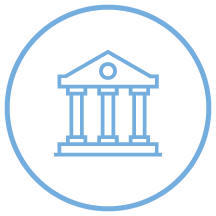
Regulation & Accountability
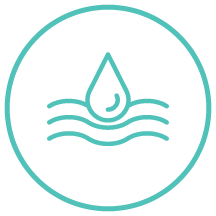
Water Resource Management
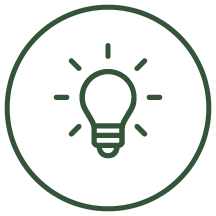
Learning & Adaptation
Resources
Systems Library
Please note this is a summary of available resources. You can learn more on the CARE, Concern, and Welthungerhilfe websites.
National
Local
National
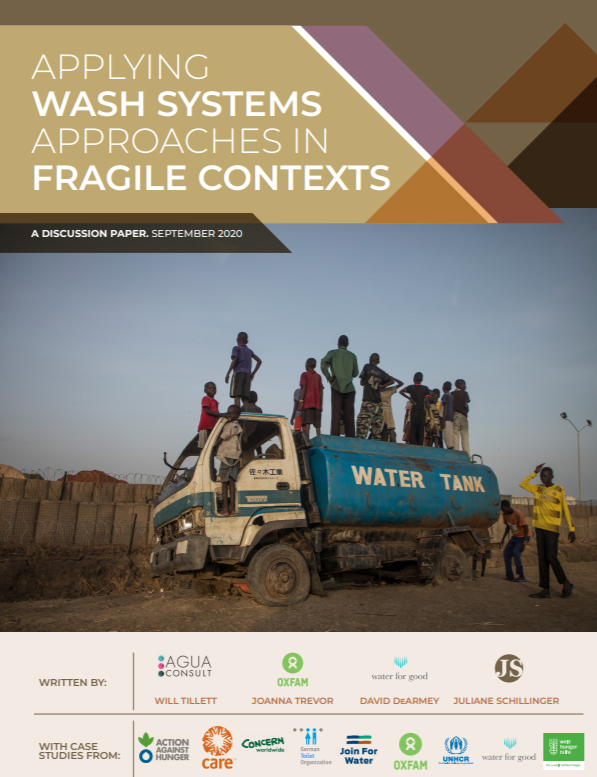



Local


